President Aliyev: “Relations between Azerbaijan and Iran are at the Lowest Level Ever”
By Brenda Shaffer
May 8, 2023
From day one of the independence of the Republic of Azerbaijan, Iran has been hostile toward Baku and consistently acted to undermine its security and independence. However, over the last year the ties between the two bordering countries have deteriorated to an unprecedented level, with Azerbaijan’s President Ilham Aliyev describing relations between Azerbaijan and Iran as “at the lowest level ever.” President Aliyev in a recent meeting with researchers laid out the factors that have led to this downturn. President Aliyev stated that in Iran, “terror is organized on a governmental level.”
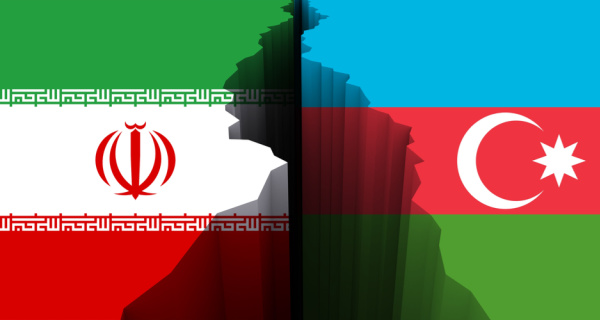
Iran-Azerbaijan Tensions and the Tehran Embassy Attack
By Alexander Yeo and Emil A. Souleimanov
May 8, 2023
On January 27, a gunman entered Azerbaijan’s embassy in the Iranian capital, killing a security officer. This violent incident appears to have taken place following numerous requests made by Azerbaijani diplomats to their Iranian colleagues to strengthen the security measures around the South Caucasian country’s embassy in Tehran. This is an unprecedented act of violence, comparable only to the incident in the summer of 2001 when an Iranian warship and fighter aircraft threatened a British Petroleum-navigated Azerbaijani vessel exploring the oil reserves of an area in the south-western Caspian contested by Iran. The event is regarded by some observers as a turning point in Azerbaijani–Iranian relations, and has been followed by a diplomatic spat between the two countries.
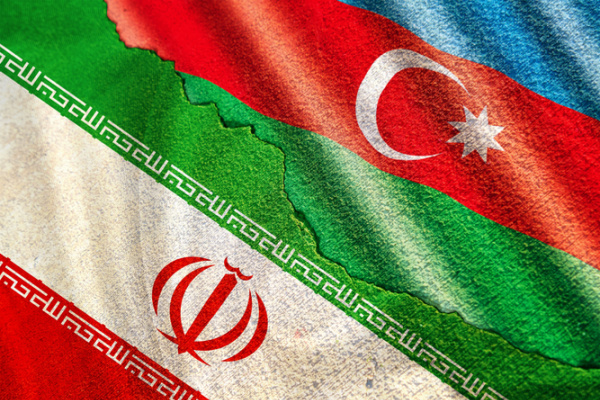
Israel’s Role in the Second Armenia-Azerbaijan War and Its Implications for the Future
By Brenda Shaffer
September 9, 2022
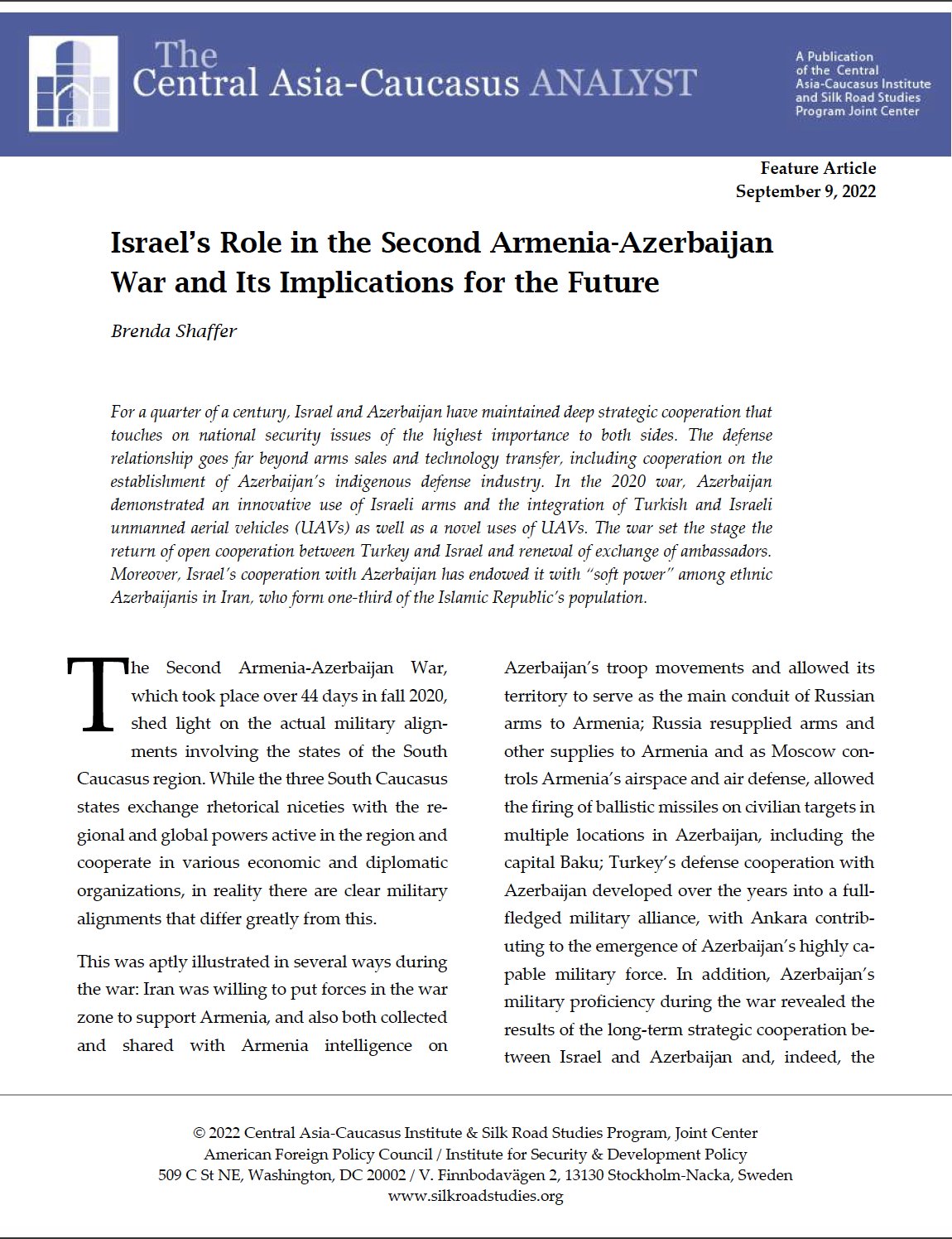 For a quarter of a century, Israel and Azerbaijan have maintained deep strategic cooperation that touches on national security issues of the highest importance to both sides. The defense relationship goes far beyond arms sales and technology transfer, including cooperation on the establishment of Azerbaijan’s indigenous defense industry. In the 2020 war, Azerbaijan demonstrated an innovative use of Israeli arms and the integration of Turkish and Israeli unmanned aerial vehicles (UAVs) as well as a novel uses of UAVs. The war set the stage the return of open cooperation between Turkey and Israel and renewal of exchange of ambassadors. Moreover, Israel’s cooperation with Azerbaijan has endowed it with “soft power” among ethnic Azerbaijanis in Iran, who form one-third of the Islamic Republic’s population.
For a quarter of a century, Israel and Azerbaijan have maintained deep strategic cooperation that touches on national security issues of the highest importance to both sides. The defense relationship goes far beyond arms sales and technology transfer, including cooperation on the establishment of Azerbaijan’s indigenous defense industry. In the 2020 war, Azerbaijan demonstrated an innovative use of Israeli arms and the integration of Turkish and Israeli unmanned aerial vehicles (UAVs) as well as a novel uses of UAVs. The war set the stage the return of open cooperation between Turkey and Israel and renewal of exchange of ambassadors. Moreover, Israel’s cooperation with Azerbaijan has endowed it with “soft power” among ethnic Azerbaijanis in Iran, who form one-third of the Islamic Republic’s population.
Iran’s policy toward the Caucasus and Central Asia
By Brenda Shaffer
August 17, 2022
Much of the analysis on Iranian foreign policy focuses on both Iran’s positonality in relation to the Middle East, and its claim to the mantle of Shia Islamic leadership. However, a more detailed examination shows that Iran’s foreign policy is also focused toward its neighbors to the north in the Caucasus and Central Asia. Tehran’s policies toward these states reveals the realpolitik core of Iranian foreign policy, especially in relation to the Armenia-Azerbaijan conflict. Iran’s foreign policy toward the Caucasus and Central Asia is intertwined with its domestic security, as several of Iran’s major ethnic groups share ties with co-ethnics in these states. Iran and its neighbors in Central Asia and the Caucasus use a high degree of policy compartmentalization in order to simultaneously derive benefit and prevent open conflict.
Iran and the Ukraine Crisis: Complexities and Considerations
By Vali Kaleji
April 25, 2022
Iran’s close relations with the Russian Federation, along with Tehran’s efforts to maintain relations with Ukraine, have complicated Iran’s approach to Russia’s military invasion of Ukraine. Although Iran has not recognized the independence of the so-called Donetsk and Luhansk People’s Republics, it simultaneously has not criticized the attack and abstained from voting on a UN General Assembly resolution condemning Russia’s invasion of Ukraine. While Tehran, like Russia, opposes NATO enlargement, it is concerned over possible negative implications of the war for the talks on Iran’s nuclear program.
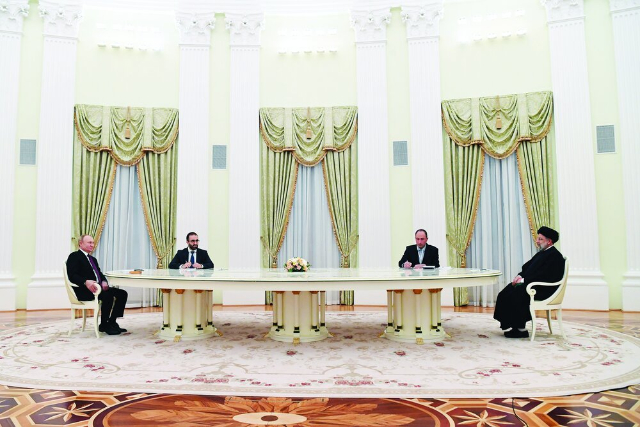
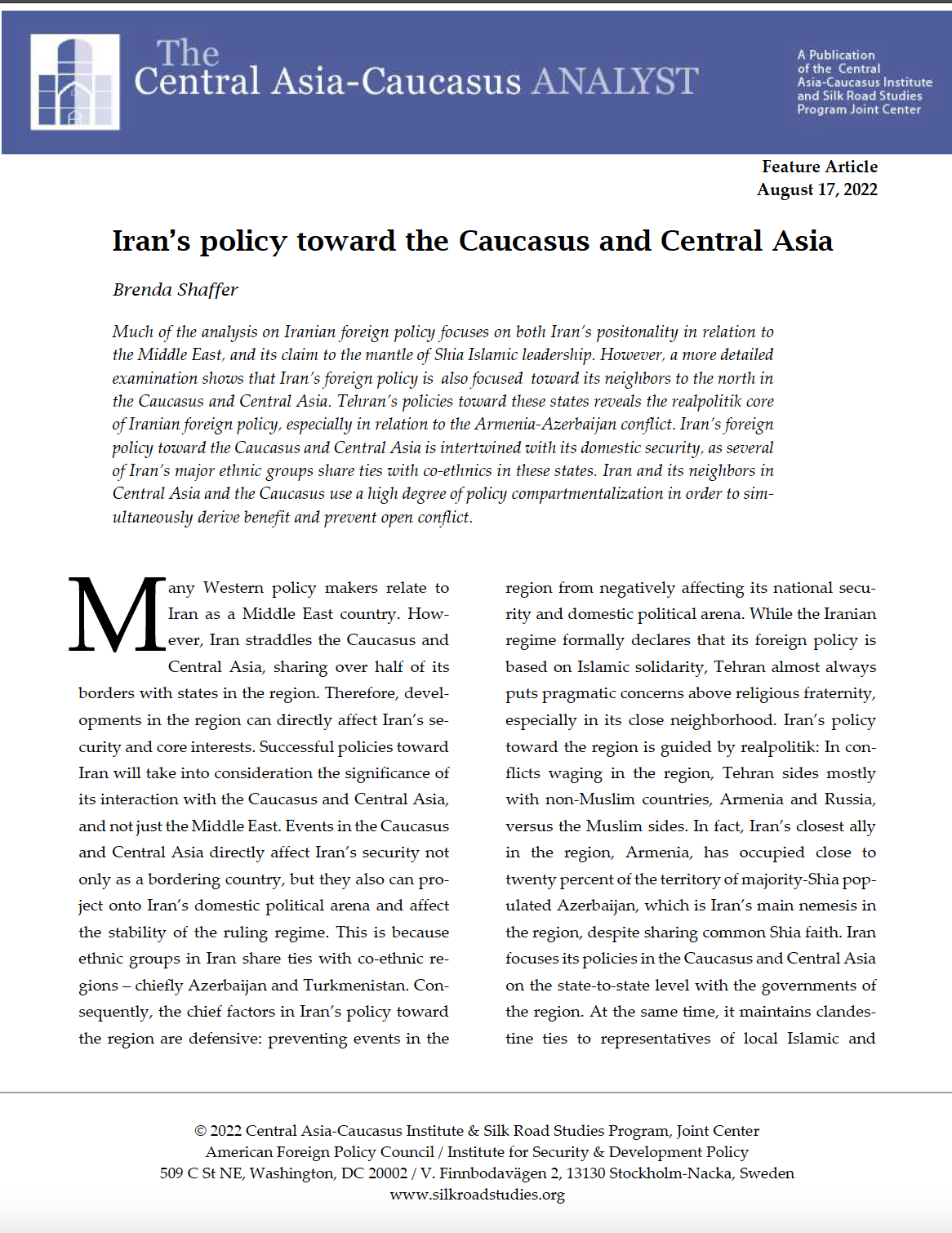






 Book S. Frederick Starr and Svante E. Cornell,
Book S. Frederick Starr and Svante E. Cornell,